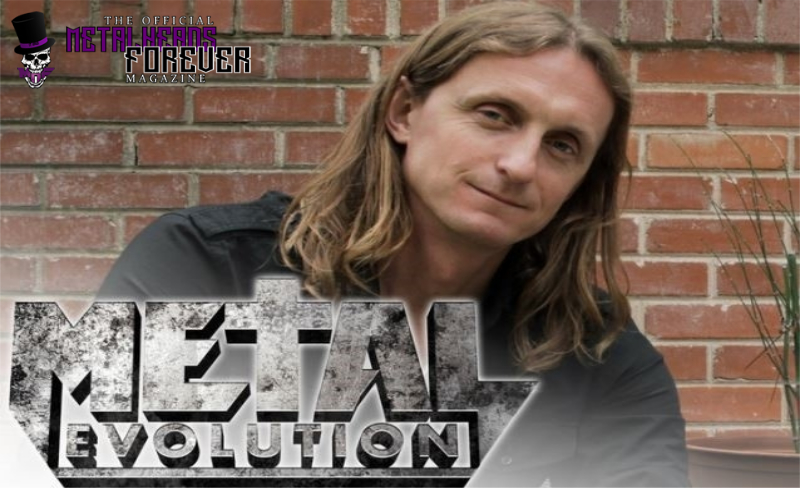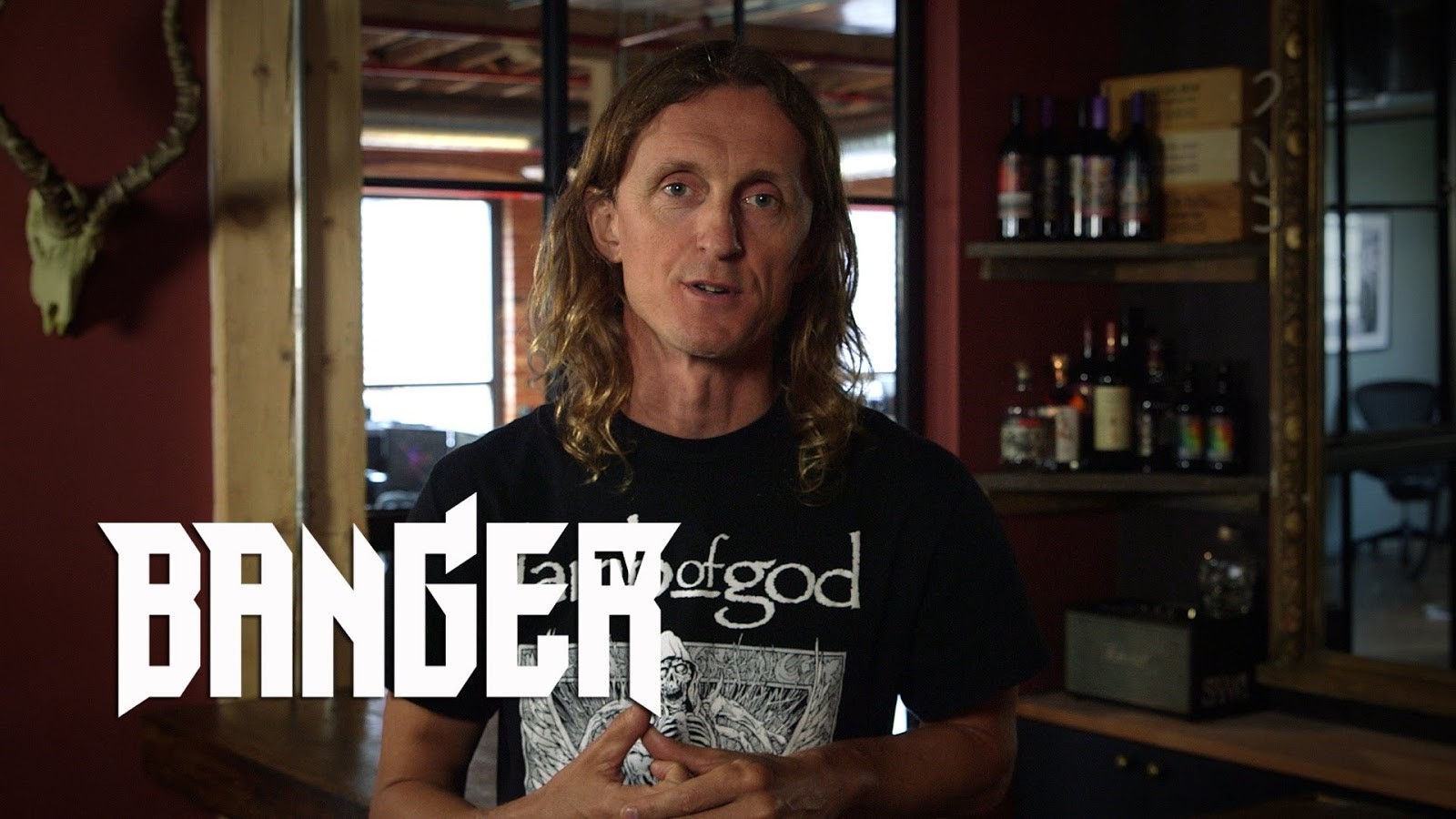INTERVIEW WITH SAM DUNN OF BANGERFILMS AND FILM
By Dillon Collins
Pioneering documentation responsible for such game-changing works as Metal: A Headbanger’s Journey and Iron Maiden: Flight 666, co-founder of Banger Films and Banger TV Sam Dunn is an undisputed icon when it comes to heavy metal.
Metalheads Forever Magazine spoke with the man who brought an anthropologists eye to tapping into the pulse of heavy metal, in an informative and candid interview on the genre, the nature of filmmaking and growing the Banger brand.
Q: Decades ago when yourself, Scott McFadyen and Jessica Wise embarked on the journey that became Metal: A Headbanger’s Journey, could you have imagined you would have reached this place? With the thriving Banger brand and numerous awards to your credit?
Sam Dunn: When we started Headbanger’s Journey, back in 2004, our goal was to create one film about heavy metal, which seemed like a real simple idea. We quickly learned that it was a massive mountain to climb. No one had really taken a look at metal music and culture in the way we thought it deserved. We got laughed out of a lot of boardrooms in those early years, us walking in having never made a film before. People in the music and film industry, not really knowing much about us, I think it was a crazy idea to a lot of people. I guess it was just one part stubbornness, one part naivety.
We were fortunate. We were one of the fortunate few where your first film is a success. With Headbanger’s Journey premiering at TIFF in 2005, it really kicked down a lot of doors for us. It was really a positive start. Did we imagine we’d be here now? The short answer was no, because we were sort of thinking one thing at a time. Now here we are in 2018 and we have multiple films and tv series in production, not just in metal, but hip hop and other genres of music. At heart, we’re storytellers, we’re music lovers. The more films we did and series we made, we couldn’t resist the temptation to keep going.
Q: Embarking on such an ambitious project like Headbanger’s Journey, did that deepen your own personal love for the music as much as it did for countless fans? It seemed to me to be a personal journey of discovery as much as it was a creative one.
Sam Dunn Making Headbanger’s Journey and then doing Global Metal and Metal Evolution, they all deepened my love for the music, which frankly I didn’t think was possible, because I loved the music so much to begin with. I think I underestimated, in the early days, the power of the story coming from a personal place. Initially my interests were largely to tell a history of heavy metal, because I felt it hadn’t been done properly.
It all goes back to a meeting with my business partner Scott McFadyen and some people we were working with. We were discussing how to tackle it and Scott turned to me and said why don’t we do it through your eyes? It was kind of like I couldn’t fathom at that moment what that actually meant, but now I realize that by bringing my own background, perspective and passion into the music, I think it did two things. It turned it into a story that metal fans themselves could also identify with, but also, for non-metal fans, it was like they had a friendly guide to an unfriendly world. It worked, it worked in many different ways.
Q: Of course you grew up a massive metal fan and have been involved in the community for the better part of your life. Having the opportunity to work alongside such artists as Iron Maiden and Alice Cooper, does that cause some sort of surreal pinch me moments?
Sam Dunn What it comes down to is that the stories of metal musicians are getting told. I think that is the most important thing to me. Historically, as we’ve said in Headbanger’s Journey and other places, and still as much is changing and people are becoming much more omnivorous in the way they listen to music. The boundaries between musical cultures are eroding and we don’t have that same tribal affiliation that we did back when I was a teenager. Despite all of that, metal is still, as Rob Zombie put it best, so fucking huge yet no one knows it exists. It’s still that music. I think what that means is that there’s still a multitude of stories from metal musicians and metal fans and people who have made the metal industry what it has become, that are yet to be told. I think that’s really what it comes down to for me.
Q: As a fan, what are some of the bands, or new music you’ve been digging?
Sam Dunn The release I’ve been the most excited for this year is from the band who’s name I reportedly always butcher, Slugdge. The British duo who put out an amazing record this year. I love its combo of one part Black Dahlia of one part Gojira meets one part Carcass. I guess for me that’s a pretty pleasing combo. That’s probably the newest band I’ve been most excited about this year.
Q: You’d have as good as an authority as any to answer this, but what do you think of the metal scene globally in 2018?
Sam Dunn I think it’s a healthy time for metal in 2018 because on one hand you have Metallica and Iron Maiden still reigning supreme globally. But what you also have is a metal underground that is very rich, and less underground by virtue of the internet. That line between what is above ground and what is underground is a lot more blurry than it was 20 years ago. I think ultimately that’s a good thing, because it means, at least in terms of ears and eyes and picking up great metal in the underground, it’s a lot easier to be seen and heard in that sense. I think what will happen in the next five to ten years will be the next test for metal. Where we will be in the next five to ten years is perhaps where we will be in the early 90s, and that’s because the stalwarts we talk about won’t be with us any longer. That and by virtue that the music industry is structured so differently now, there just aren’t the opportunities for rock bands to become giant, stadium-level bands. It’s going to be an interesting time. If metal has to “retreat” and have to regain its power and strength, I kind of welcome that in a way. A lot has been said about how the 90s were a downturn for metal, and it certainly was for the legends, but it can also be argued that the 90s were one of the most fertile periods in heavy metal history, particularly with what was going on in Sweden and Norway. Sure, from a pure dollars and cents, apples and oranges, maybe we have cause for concern for the next five or ten years, but ultimately it could be a good thing for the music itself.
MHF Magazine/Dillon Collins






